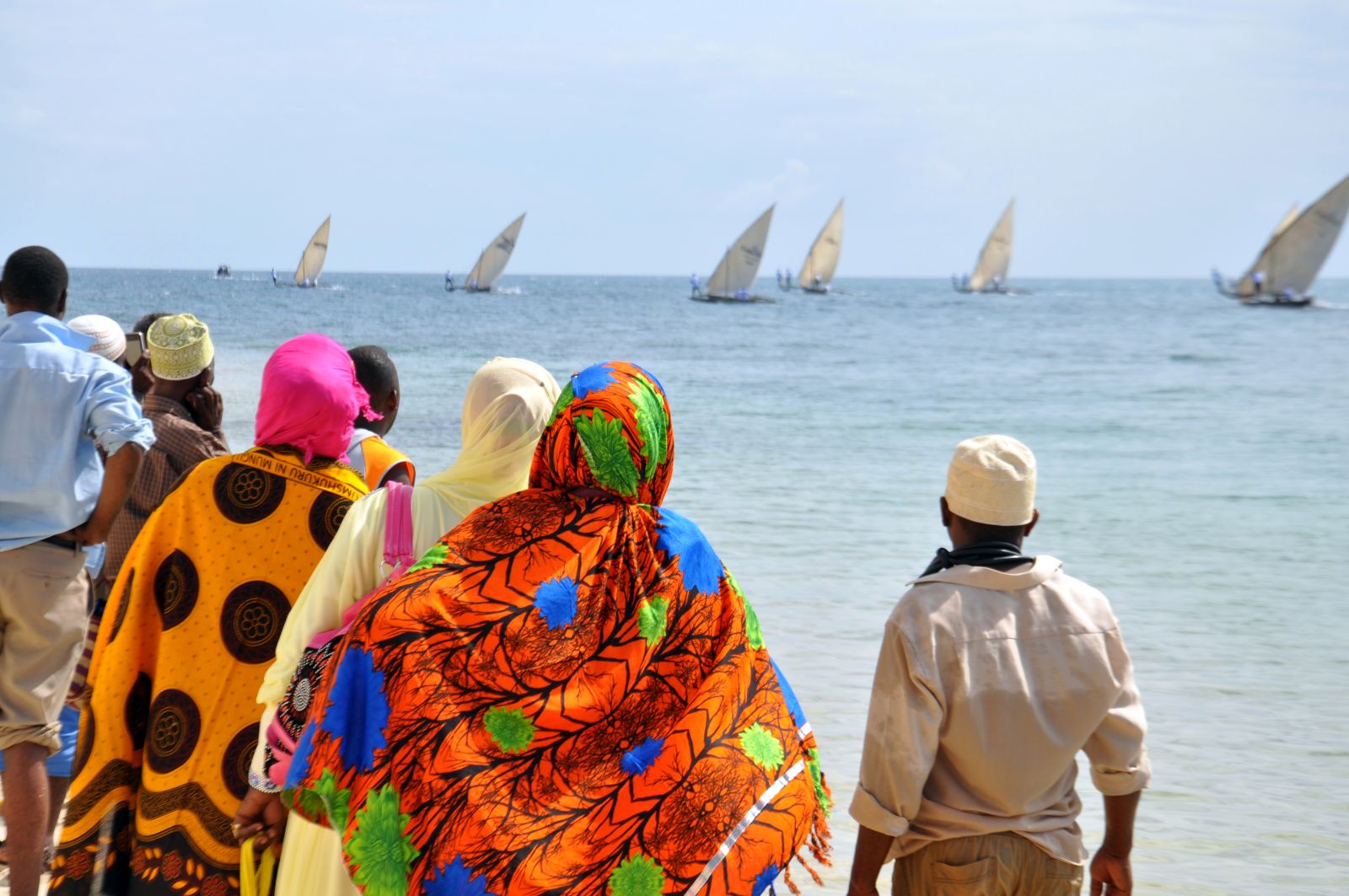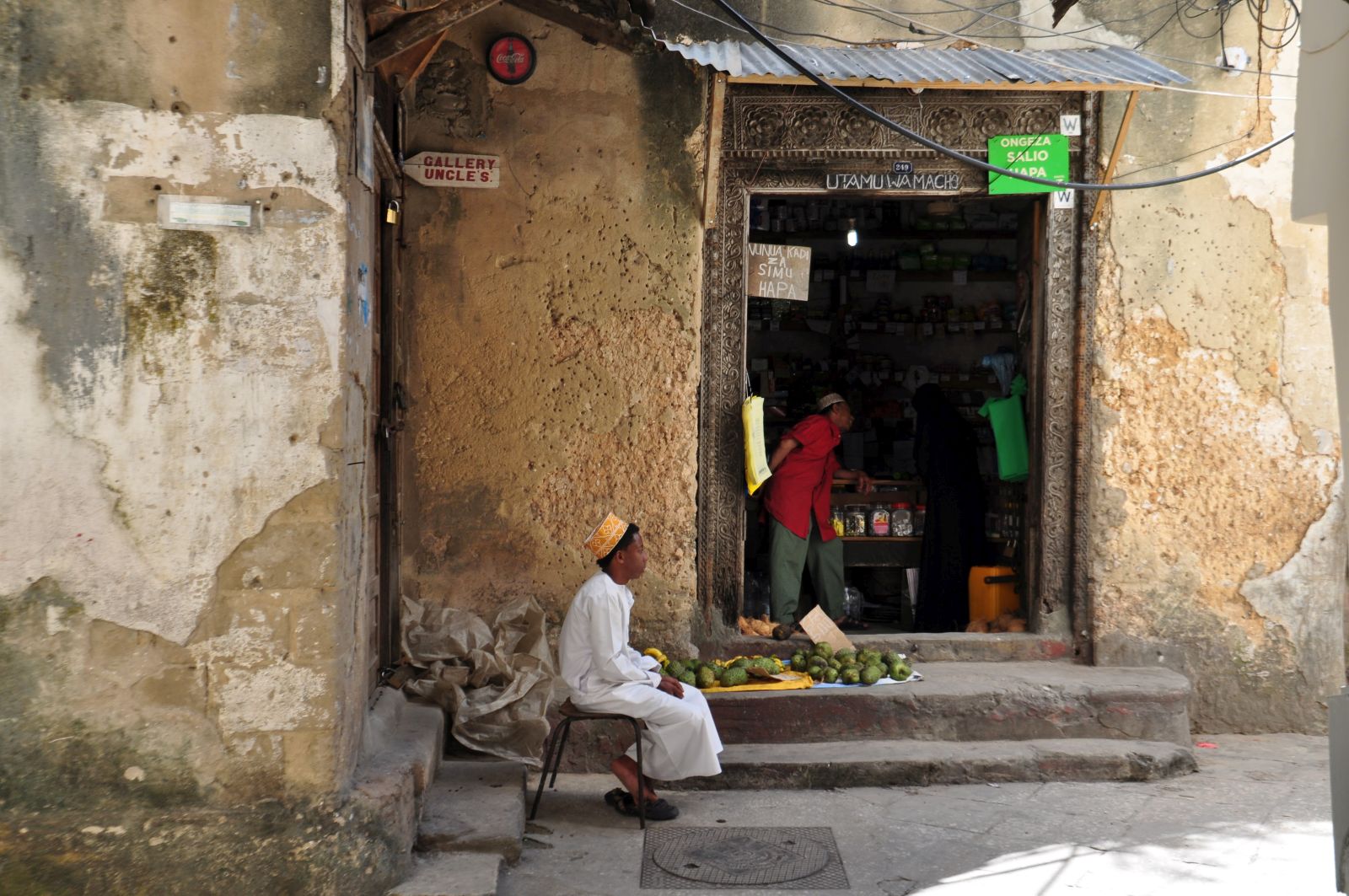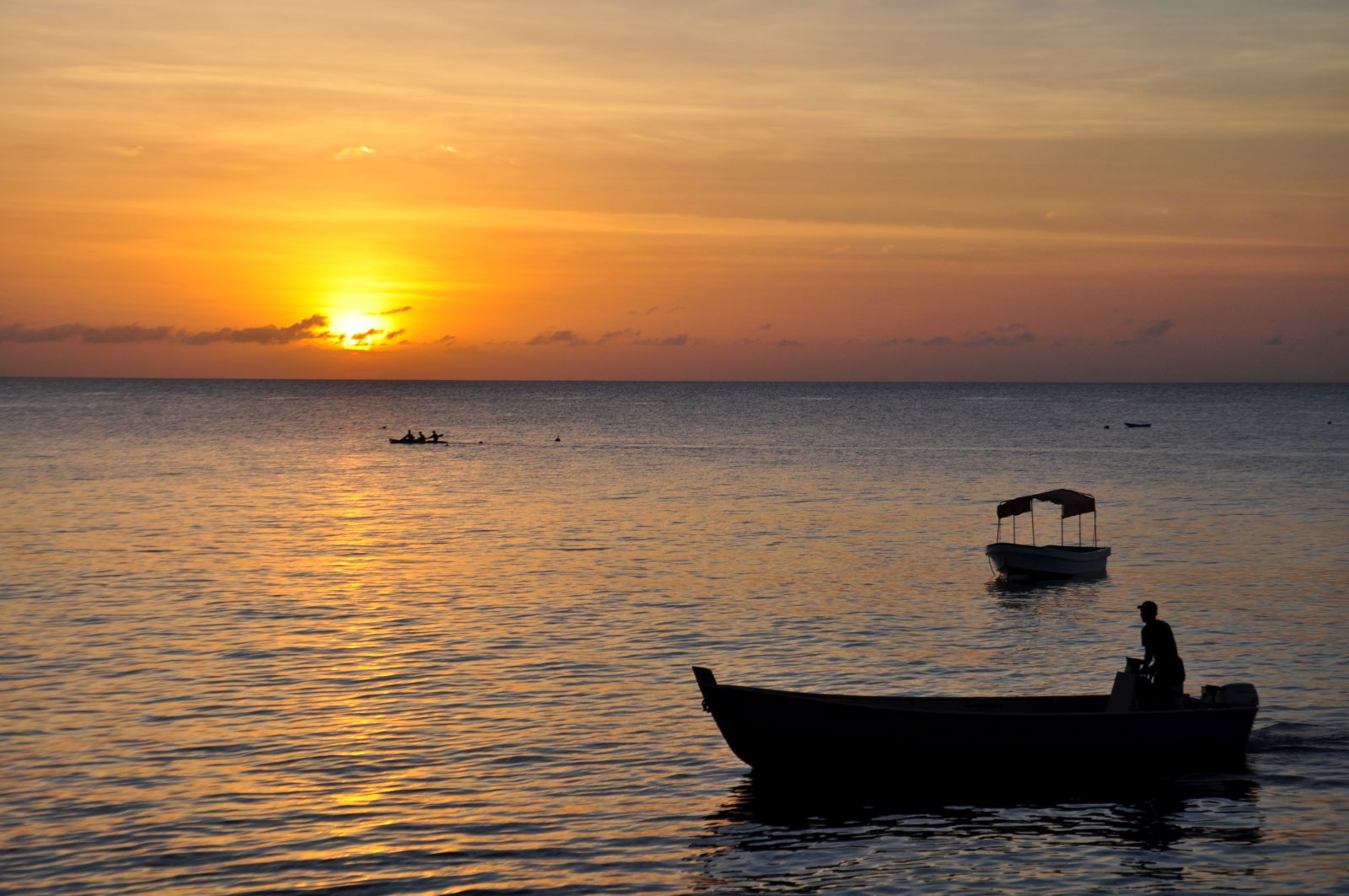Zanzibar On The Mind
Tuesday, June 28, 2016

The men sit and they wait, casually oblivious to my watchful gaze. I am standing on a small stretch of beach that straddles Zanzibar’s main Town, Stone Town, and the narrow ribbon of Indian Ocean, which separates the island from the African mainland. Fifteen traditional dhow boats wait expectantly at the water’s edge, tiny waves gently caressing their simple wooden hulls. A basic set of wooden poles and weather-beaten ropes lead to two stabilizers on either side, a thicker lone pole acts as the mast, softly swaying to the rhythm of the sea. The ancestors of these crude, yet exquisitely crafted boats have plied the waters around Zanzibar for thousands of years.
Modern hulking hotels with little to no aesthetic thought loom over the beach, gazing down oppressively on the small crafts. The fiery African sun has begun its downward path but still eats into you mercilessly. Tiny rivers of sweat explore my body as I watch the crews tighten ropes, check, then re-check knots. Their toes gently break the calm, warm waters of the Indian Ocean as arms casually hang across the simple set of ropes that lead from the the edge of the small boats to the top of the mast. Some stretch their legs one last time in the shallow transparent tide, but most simply sit and wait.
Ramadan had broken days before and the island was in the thralls of its annual four-day Eid celebration. Islamic beliefs fuse effortlessly with the intense colors of Africa — modesty is still preserved, but it is done so with a vivid, vibrant pallet of color. The often dour colors reserved for Muslim women in the Middle East are replaced by an intense kaleidoscopic rainbow that swirls nightly through the smoky market stalls in the Forodhani Gardens. Families move fluidly around tables groaning under great towers of lobster, crab and fish. The occasional lamp casts warm flickers across the tables and the faces peering closer for inspection.
Race time is approaching. The beach hums with excitement as women and children surge down the sand. Small groups gather with the children playing excitedly among the adults, the youngest of which hold tightly to their mothers or older siblings, while peering shyly around them.
The boat closest to the town begins to hoist its mainsail, ropes tighten and the white cloth strains into the wind. A wave flows rhythmically down the beach as each boat in turn sweeps its sail skyward. The competitors ready themselves.
A countdown begins somewhere in the crowd. In unison the younger crew members heave their boats off the sand and into the shallows. Each boat wobbles as it gains buoyancy followed by a jolt as their sails arch into the wind, tugging the tiny vessels out to sea. Those in the water scramble aboard and fling themselves into position.
One hapless boat begins turning awkwardly in the wrong direction. The crowed roars encouragement but to no avail — the stricken boat starts to drift sadly back to shore. A group of young boys hurl themselves into the water and begin dragging it out to sea. The beach dwellers bellow their approval: the little boat has been saved.
It joins the back of the line that is now racing parallel with the shore. Spectators young and old scamper along the beach front whooping and cheering. At the headland they gather and watch intently as the dhow boats speed out to open water. Slipping further and further from the shore, their outlines slowly become simple black dots on the horizon. The battle is now almost out of sight.

If the ocean is the life of Zanzibar, its history lies in the twisting, cavernous alleyways of Stone Town. The intricate set of paths between the market and the seafront lead both everywhere and nowhere, a perfect area to become happily and understandingly lost in. The varied and tumultuous past of this small African island lives and breathes in the chipped paint and battered facades of many of the building — a story of grandeur, past riches and of faded glory. Ancient, beautifully carved doors keep their mysteries well hidden while others are flung open as souvenir shops to line the more popular routes.
Zanzibar’s history is colorful but checkered. Passed from empire to empire over time, its importance has always been unique. Portugal, Oman and finally Britain squeezed what they could from Zanzibar until Tanzania finally declared independence in 1964. The island played an integral role in the spice trade and vast wealths were built on Zanzibar where Stone Town still showcases the crumbling relics. The towering, wonderfully named House of Wonder echoes of an architectural past that has been sadly lost. The bold, splendidly large building complete with a dominating clock tower houses a small museum, which in truth is far less exciting than the actual building itself.
Yet Zanzibar is perhaps equally known for its important part in the dark stain of slavery. Its infamous role as the largest slave market in Eastern Africa meant that at its peak an estimated 50,000 slaves passed through the island each year until slavery was outlawed in 1873.
The old slave house, with its cramped, sweltering rooms that once housed hundreds of slaves as they awaited their sale, is a painful reminder of the horrors that heavily contributed to Zanzibar’s fortune. Outside the sun shines brightly on a set of sculptured figures standing in a nearby pit. Heavy iron shackles hang from their necks and a look of mournful acceptance captured on their faces. Directly behind it lies the island’s largest Christian church. The congregation seated outside sing a painful, yet uplifting hymn in Swahili. It seems entirely appropriate for the setting.
A short distance away, the Darajani market is a wonderfully vivacious reminder of where you are. Thick streams of people move like lava in every direction, in and around market stalls selling everything from fruit to shampoo, from telephones to chickens. Sellers slouch in the afternoon sun, their goods spread widely over simple plastic sheets. Intense negotiations take place over both the price and the quality of what’s on offer. Motorbikes grunt impatiently while attempting to inch through the mob before finally breaking away and roaring on. In the darkened corners of the covered meat market mangled, unidentifiable animal carcasses hang from jagged hooks, blood congealing on the floor.

Two hours later the boats begin to return. The fleet that had all began as one are now spread out over a wide distance. The two leaders cling desperately to one another as they once again run parallel with the shoreline. It is almost too much for the crowed. Difficult to distinguish who was supporting who, the noise simply grows and grows into a great orchestral boom.
One boat begins to slip clear. As it nears the finishing line some of its crew throw themselves overboard, hauling the boat through the water and onto the sand. The air is split by the roar that greets them as the crew fall to their knees in exhaustion.
The triumphant boat is dragged onto the sand and the crew take in the adulation of the jubilant crowd that quickly surrounds them. Tired handshakes and hugs are distributed as the weary victors are escorted from the sand to what I can only hope is a night of joyous merriment.
The boat race has been won.
As the rambling excitement moves away and the noise begins to calm, I am left on my own on this small beach on this tiny African island. I try to retrace memories to a time when I didn’t truly understand what Zanzibar really was, but I struggle — the connection is no longer there.
I turn and walk along the beach towards a bar named Livingstone’s which I have become keenly acquainted with. Located in the building of the old British consulate, with its lofty ceiling and wonderfully old-fashioned central bar, it’s the kind of establishment that feels like it hasn’t changed in hundreds of years.
As I sit on a creaky wooden stool cooling myself with an ice-cold beer, I imagine myself as an African explorer from the previous century, taking time out from my latest daring adventure down the Zambezi river. My eyes settle on old map of Africa that hangs on the wall and the mind begins to drift dreamily towards unexplored corners of the continent.

By Olivier Guiberteau
 Olivier Guiberteau is a freelance travel writer and photographer (and English teacher) who lives in Northern Italy, on the shores of Lake Garda.
Olivier Guiberteau is a freelance travel writer and photographer (and English teacher) who lives in Northern Italy, on the shores of Lake Garda.
